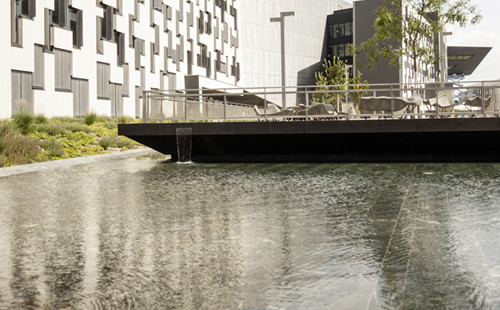Beyond the “safe” choice: pursuing a career in IPE
Our teaching and research associate, Teresa Hübel, offers insights into her decision to pursue a career that combines international economics and politics.
One of the goals of the Institute for International Political Economy is to inform our students and the broader public about possible career paths with a background in IPE. Our teaching and research associate, Teresa Hübel, offers inspiring insights into her decision to pursue a career that combines international economics and politics.
Article by Teresa Hübel, MSc, Teaching and Research Associate
Many years ago, I attended a master's studies fair. That day, I decided to pursue a career in economics. It was a defining moment, not because I decided to do a master's in economics, but because I realized why I hadn't decided to do so much earlier. At that time, I was studying in the economic and social sciences bachelor's program at the WU. I specialized in entrepreneurship and innovation as well as consumer research. Initially, I expected to gain inspiration regarding which business area to specialize in. However, when I listened to the talk about WU's master’s in economics, I was filled with curiosity and excitement and remembered something that I had almost forgotten: My initial motivation to study economics and social sciences was an economics course I had taken as a high school student during a semester abroad in New Zealand. I realized I had switched to business mainly because of two subconscious beliefs. First, I thought that economics was an occupation without options. All too often, when I had expressed interest in the subject, I was met with confusion and skeptical looks. "Hmm, interesting…and what exactly can you do with that later?" Second, I was uncertain whether my math skills would be sufficient to pursue a career in that area. Unconsciously, I had decided to stick with the "safer" option and specialize in business. Once I identified this thought pattern, I decided to discard my doubts and give it a go. I attended some extra classes in the specialization of economics, brushed up my math with some additional courses at the University of Vienna, and applied to the master's degree in economics. My doubts proved unfounded, and I never looked back. My decision opened exciting job opportunities. I was glad to find out that the quantitative skills needed at university only tangentially related to high school math and resembled the problem-solving I had always enjoyed.
When I think back, I am really happy that I attended my school's master's fair. If I could give my 18-year-old self some advice, I'd tell her to pause whenever she decides against her intuition and goes with the "reasonable choice." Are there any subconscious beliefs influencing your decision? There is always time to change directions and switch to something else. This is the nice thing about the Bologna system. Instead of one more extended degree, we have a natural cut between bachelor's and master's that allows us to pause and think about which steps to take next. What is more, following my intuition paved the way for a career in economics and allowed me to confidently opt for the "unreasonable" choice and pursue a Ph.D. after finishing graduate school. I have always been fascinated by the interplay of politics and economics. I found the perfect fit for my research interests with the Institute for International Political Economy. This time around, I wasn't deterred by notions of job market prospects of different career choices. As a result, I’m able to pursue my passions, pass on knowledge to students, and think about some of society's most pressing issues!
Sign up for our mailing list for regular updates from the Institute. You can find the subscription form here: Subscribe to the newsletter
